FCA Regulatory Entity

In this article
Currently, the Financial Conduct Authority (FCA) regulates the financial services industry in the UK and oversees the country’s financial markets. In the FCA, the team aims for honest, fair, and inclusive markets that benefit individuals, businesses, consumers, and the economy at large.
The authority aims to meet these objectives by protecting consumers, ensuring the stability of financial markets, and encouraging competition. The FCA is under the direction of the UK, which is a division of Parliament.
Understanding the FCA
In addition to its strategic goal, the Financial Conduct Authority (FCA) has three operational objectives. To accomplish these objectives, the UK financial sector must protect and enhance consumer protection, protect and enhance its integrity, and encourage healthy competition between financial service providers in the interests of consumers.
In April 2013, the FCA replaced the Financial Services Authority as the regulatory authority for conduct and prudential matters. The FCA’s statutory objectives are defined in the Financial Services and Markets Act and amended in 2012. In response to the 2008-2009 financial crisis, Britain’s Financial Services Act of 2012 significantly changed how financial services firms are regulated. To increase the quality of financial sector management, the Act was brought into effect.
Financial Conduct Authority Powers
The FCA has broad powers to enforce its mandate, including rule-making authority, investigative powers, and enforcement authority. Furthermore, the FCA has the power to raise fees since it is independent and doesn’t receive any funding or financing from the Government. Hence, the FCA demands fees to authorize firms that hold the activities which FCA regulates. Also, FCA demands fees from other bodies such as recognized investment exchanges.
Mission of FCA
In regulating financial services, they strive to add the greatest benefit to the consumers. The entity aims to become a successful regulation that relies on the public’s consent, trust, and confidence. The service provides to both the consumers and the regulated sectors. They ensure the people that powers are used consistently, transparently, and proportionately. Transparency is their main priority when making regulatory judgments. The regulation is completely clear, not just in terms of its benefits but also its costs.
Vision of FCA
The FCA regulates the sector that is vital to the lives of everyone in the UK, and without which the modern economy cannot function. How well the financial markets work affects all of us. Whether it’s children’s ISAs or pension plans; moreover, it could be direct debit or credit cards, loans, or investments. Also, it maintains confidence in the UK as a major global financial hub. FCA considers itself responsible for making sure these things happen.
Functions of Financial Conduct Authority (FCA)
As explained on the FCA’s website, the authority regulates the conduct of approximately 59000 financial services firms. Also, it deals with many financial markets in the United Kingdom. The main objective of FCA is to provide honest and fair markets for individuals, businesses of all sizes, and the overall economy. As the UK treasury and Parliament control the FCA, it protects consumers, financial markets and promotes competition.
Financing of Financial Conduct Authority
As discussed previously, FCA is an independent body that charges fees from all the firms it regulates. To accomplish its statutory duties, the firms provide FCA with periodic fees. The fees are totally dependent on the type of regulated activities that a firm acquired, the scale of the range of those activities, and the regulatory charges incurred by the FCA.
By introducing and enforcing the rules which govern the UK financial services industry, FCA may investigate both organizations and individuals who may have violated them.
FCA Supervision
The FCA’s responsibility is to set the minimum standards that financial services products must meet to enter the market. But if they do not meet those standards, FCA has the power to withdraw or change them. Thus, it is finally up to the FCA to decide whether to impose an indefinite ban after one year of banning financial products.
Structure of FCA
The Board is responsible for the preparation of the FCA Policy. The Financial Conduct Authority reports to the Treasury and, through them, to the Parliament. The FCA Board, which includes both executive and non-executive members, has the following committees
- Audit Committee
- Risk Committee
- Regulatory decisions Committee
- Remuneration Committee
- Oversight Committee
The Executive Committee is responsible for the day-to-day decisions and staff management. The FCA’s executive management team has multiple divisions. These divisions support the FCA’s daily tasks to ensure that the entity meets its statutory objectives.
FCA Regulations
The Financial Conduct Authority performs a supervisory role with many payment institutions and specifically banks. It ensures that the institutions treat their clients fairly, proceed with operations safely. Also, they do not act in a way that stifles competition or poses unacceptable threats to the economy of the UK. in particular, the FCA focuses on money laundering, banking, and finance firms are subject to specific regulations about anti-money laundering. For example, they must monitor suspicious activity, perform risk assessments, and appoint reporting offices.
FCA Authorization
The FCA is further responsible for registering and authorizing all financial service providers, investment firms, and consumer credit firms in the UK. The application process of authorization and registration can take from six to twelve months, and it is fee-based. To work with the FCA proactively, firms must demonstrate that they meet regulatory standards.
Transparency
To achieve transparency and accountability, the FCA aims to be as effective as possible. As a result, consumers, businesses, and the Parliament can scrutinize FCA activities. Among its transparency measures, FCA publishes information about firms and individuals that it regulates. Further, the FCA makes sure that all regulated firms publish information to be as transparent as possible.
Bottom line
The FCA is responsible for overseeing the functioning of the UK financial markets, investment firms, and consumer credit firms. FCA accomplishes its duties by protecting consumers, protecting financial markets, and promoting competition. The FCA is an independent, public body under the Treasury and the Parliament of the United Kingdom. FCA receives a fee from the companies it regulates to provide its services.
Jason Morgan is an experienced forex analyst and writer with a deep understanding of the financial markets. With over 13+ years of industry experience, he has honed his skills in analyzing and forecasting currency movements, providing valuable insights to traders and investors.
Forex Content Writer | Market Analyst
Relevant Posts

FC Regulatory Entity
[top_three_brokers] FC stands for Financial Commission, which is an independent international body for brokers and…
Read more

AFSL Regulatory Entity
[top_three_brokers] AFSL, the Australian Financial Services License, is a legal license issued by ASIC, the…
Read more

SCB Regulatory Entity
[top_three_brokers] SCB is the abbreviation of "The Securities Commission of The Bahamas (SCB)." This sector…
Read more

MFSA Regulatory Entity
[top_three_brokers] Malta Financial Services Authority- MFSA is the main regulatory body of Malta. It was…
Read more

SEC Regulatory Entity
[top_three_brokers] SEC stands for US Securities and Exchange Commission, an independent regulatory agency supervised by…
Read more

FSCA Regulatory Entity
[top_three_brokers] FSCA, The Financial Sector Conduct Authority, is a market conduct regulator of financial institutions.…
Read more

NAUFOR Regulatory Entity
[top_three_brokers] The National Association of Stock Market Participants is an industry-wide, independent self-regulatory organisation. It…
Read more

NBRB Regulatory Entity
[top_three_brokers] NBRB Regulatory Entity (National Bank of the Republic of Belarus) is the Republic of…
Read more

FINMA Regulatory Entity
[top_three_brokers] FINMA stands for Swiss Financial Market Supervisory Authority. As a federal supervisory authority, it…
Read more

JSC Regulatory Entity
[top_three_brokers] The Jordan Securities Commission (JSC) emerged as an independent public organization in 1997. The…
Read more
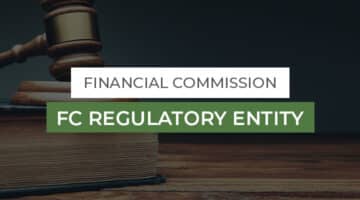
FC Regulatory Entity
[top_three_brokers] FC stands for Financial Commission, which is an independent international body for brokers and…
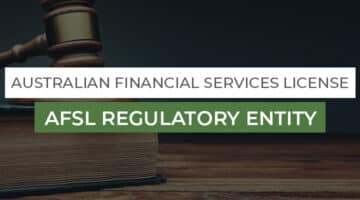
AFSL Regulatory Entity
[top_three_brokers] AFSL, the Australian Financial Services License, is a legal license issued by ASIC, the…
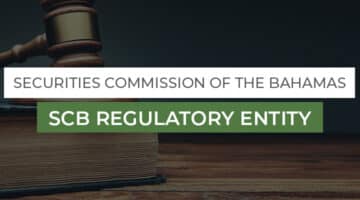
SCB Regulatory Entity
[top_three_brokers] SCB is the abbreviation of "The Securities Commission of The Bahamas (SCB)." This sector…

MFSA Regulatory Entity
[top_three_brokers] Malta Financial Services Authority- MFSA is the main regulatory body of Malta. It was…

SEC Regulatory Entity
[top_three_brokers] SEC stands for US Securities and Exchange Commission, an independent regulatory agency supervised by…

FSCA Regulatory Entity
[top_three_brokers] FSCA, The Financial Sector Conduct Authority, is a market conduct regulator of financial institutions.…
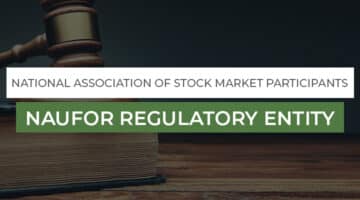
NAUFOR Regulatory Entity
[top_three_brokers] The National Association of Stock Market Participants is an industry-wide, independent self-regulatory organisation. It…
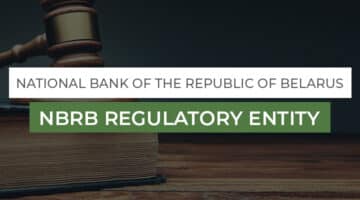
NBRB Regulatory Entity
[top_three_brokers] NBRB Regulatory Entity (National Bank of the Republic of Belarus) is the Republic of…
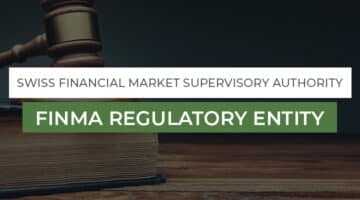
FINMA Regulatory Entity
[top_three_brokers] FINMA stands for Swiss Financial Market Supervisory Authority. As a federal supervisory authority, it…
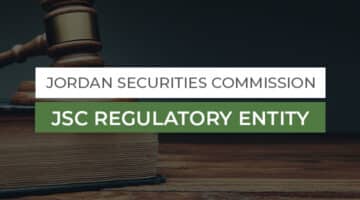
JSC Regulatory Entity
[top_three_brokers] The Jordan Securities Commission (JSC) emerged as an independent public organization in 1997. The…


